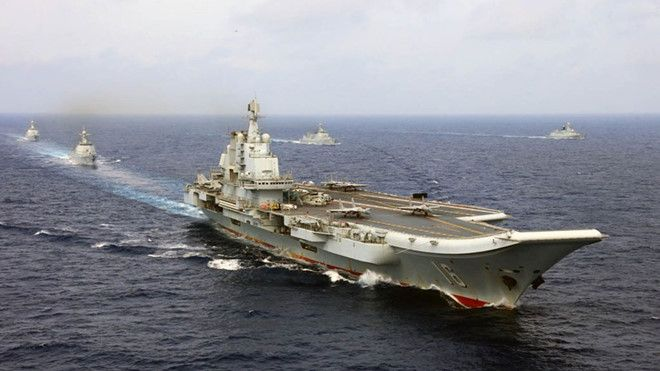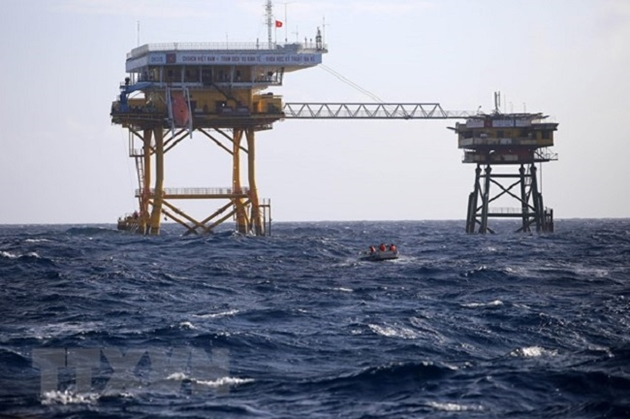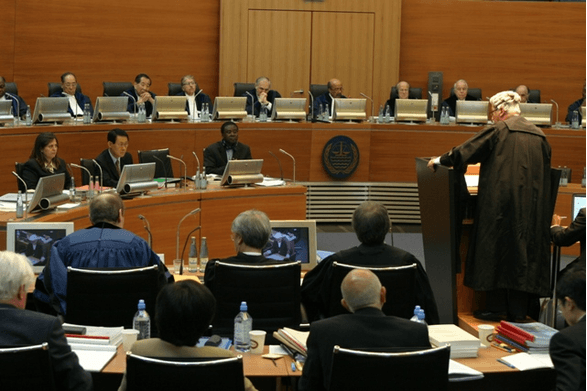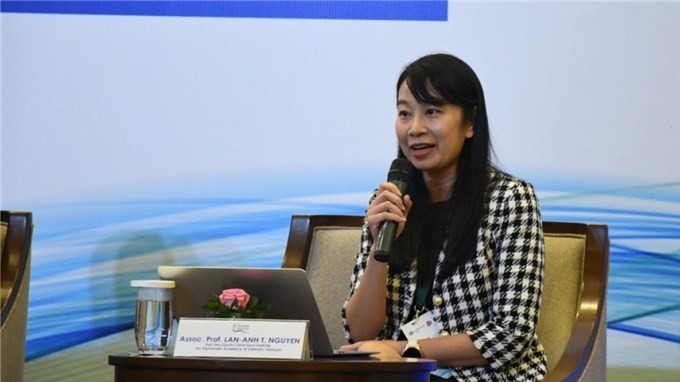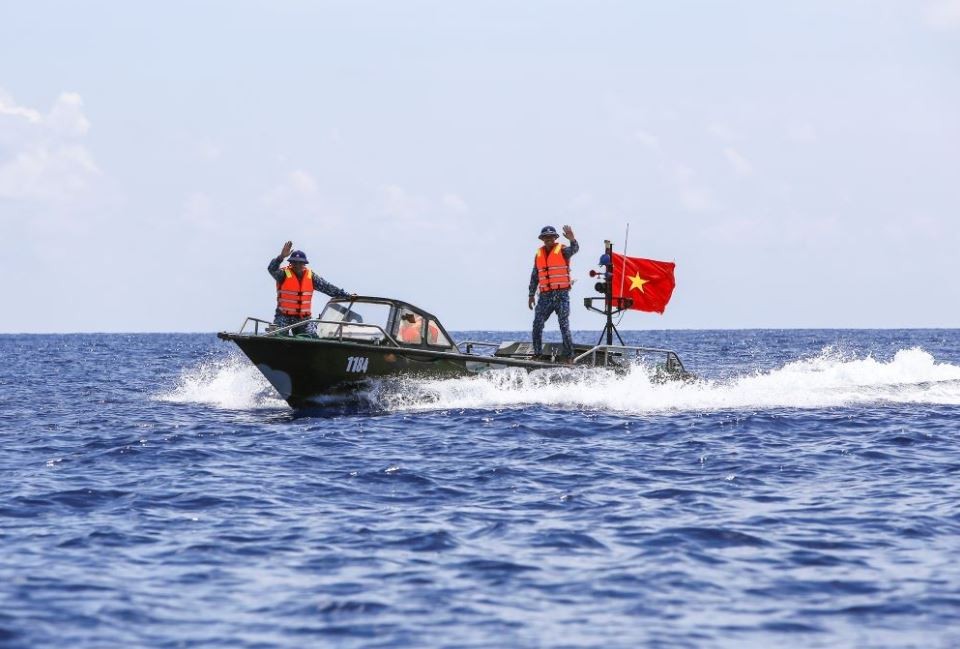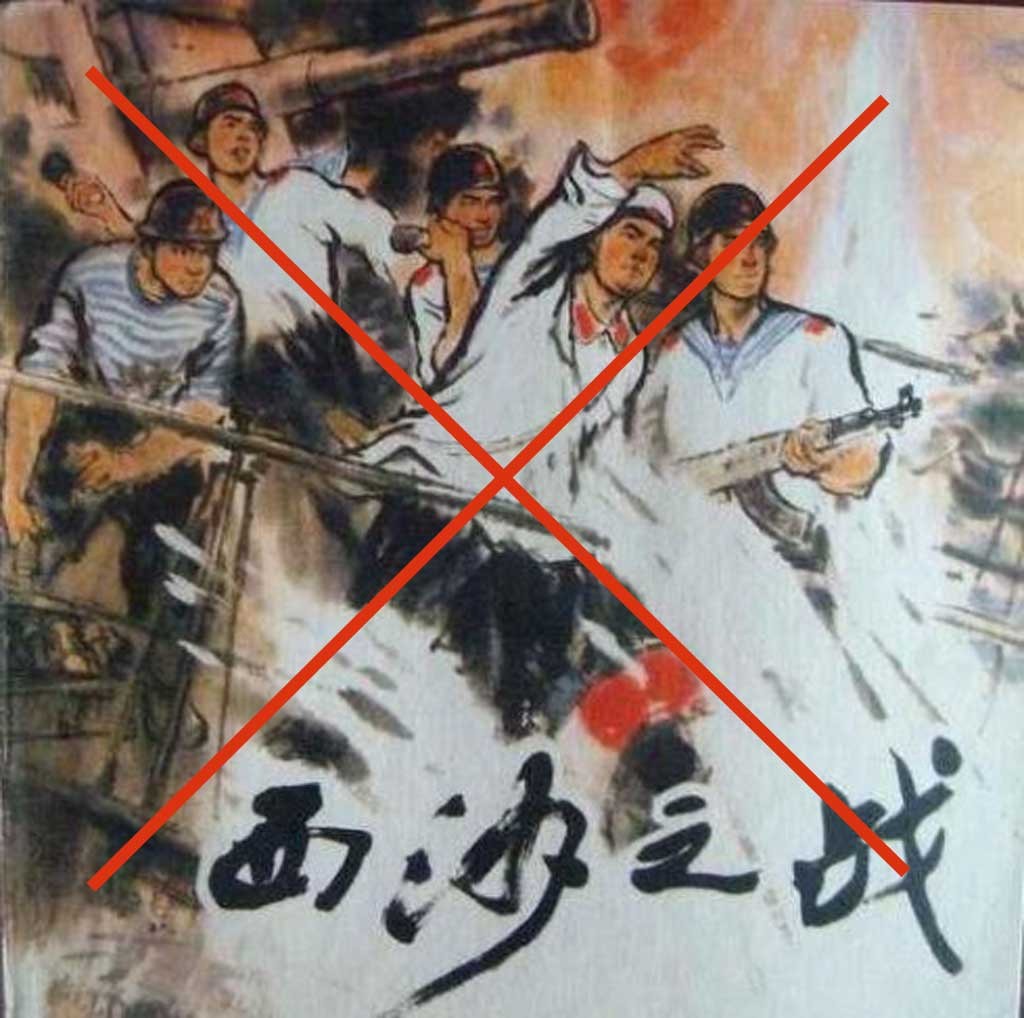The Truth About The South China Sea: A Voice From Vietnam (Part VI)
What can be solutions for the region’s future?
The growing tensions in the South China Sea, along with accelaration of armament, militarization, unilateral use of force in defiance of international law, growing radical nationalism, and increasingly fierce confrontation and strategic competition between the US and China will inevitably lead to further instability in the whole region’s security and development environment and, in general, will be disanvantageous to all countries, including China. Peace, stability and cooperation for development and prosperity always serve the fundamental and long-term interests of all nations. A proper awareness and responsible coordination of actions from all countries in the region and the international community are required for building trust and eliminating emerging threats and challenges.
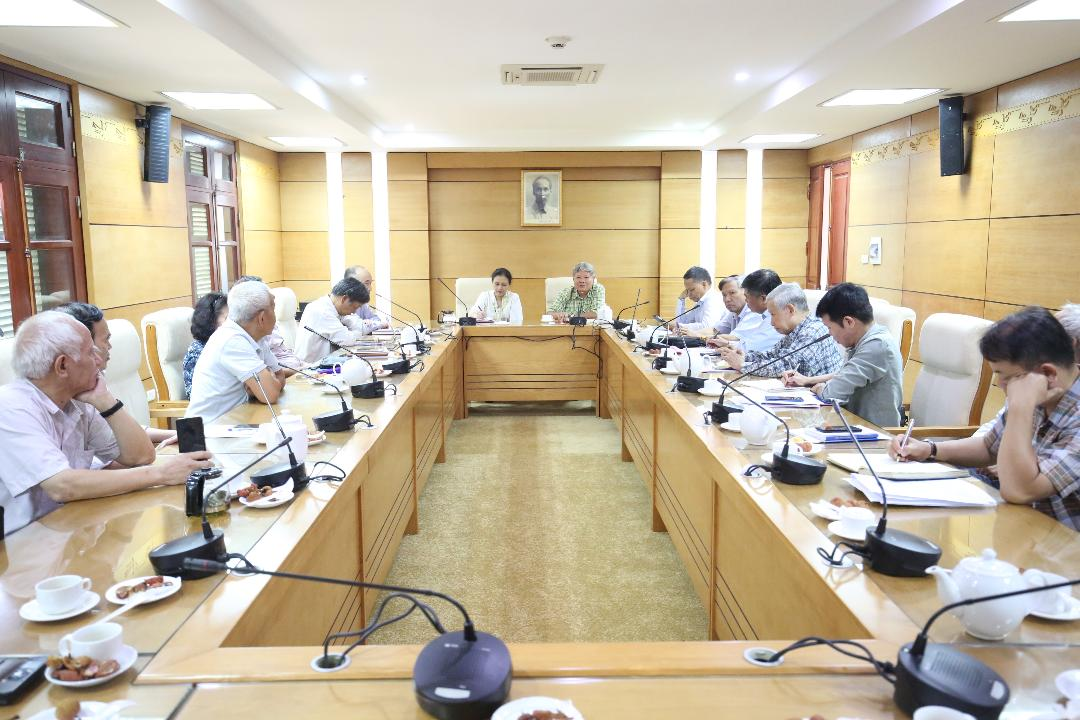 |
| Discussion on the situation of the South China Sea at the Vietnam Peace & Development Foundation (Photo: VPDF) |
First and foremost, the South China Sea should be understood as a traditional living space and an essential security and development environment for all coastal countries on the one hand, and an international body of water and a maritime and air route of primary importance of the world, on the other. Therefore, no country shall be allowed to exercise unilateral domination or control of the South China Sea, and maintenance of peace, stability, safety and freedom of navigation in the South China Sea in line with international law shall be a common primary responsibility of all countries in the region and the international community. With a view to clarifying and fortifying such an awareness, researchers of different countries have of late suggested the use of “Southeast Asia Sea” as the official international name of this body of water, in order to better reflect its geographical position and its “common” character, instead of “South China Sea”, which is linked to just one of the coastal countries.
Second, it should be made clear that in relation to the Souht China Sea, there are 3 main issues have emerged that need to be addressed: first, disputes over sovereignty, sovereign rights and jurisdiction among coastal states, of which the biggest and most acute are between China and the others; second, strategic confrontation and competition between the US and China in the region; and third, maintenance and ensurance of peace, stability, safety and freedom of navigation and overflight, and ecological environment protection in the South China Sea. The three issues are closely inter-connectedand inter-act with each other.
Third, a satisfactory solution to the South China Sea issue could only be found on the principle of respect for the law, abidance by the fundamental principles of the United Nations Charter and other instruments of international law, especially strict and full compliance with stipulations of the 1982United Nations Convention on the Law of the Sea as a Charter of Mankind on Oceans today. Any unilateral action in defiance of international law shall only increase tension and risks of conflict in the region.
Therefore, claims by all parties relating to sovereignty over sea features as well as to water bodiesshould be consistent with international law, especially UNCLOS. Priority should be given to the settlement of differences or disputes through direct negotiations between the parties concerned. In case no consensus is possible, the parties may resort to other peaceful means, such as mediation, conciliation, or arbitration by international jurisdiction agencies, the rulings of which shouldnecessarily be respected and enforced strictly. In the meantime, no party might act unilaterally to change the status quo and expand control, or to conduct exploration and exploitation beyond their respective exclusive economic zones and continental shelves as defined in accordance with UNCLOS stipulations.
At the same time, coordinated efforts are urgently needed to focus on stopping the arms race in the South China Sea, or even demilitarizing the South China Sea through gradually reducing and minimizing the presence of offensive weapons and military operations at sea of all parties.
Finally, it is of great importance that studies be conducted and consideration given at an earliest possible time to promoting the formulation of regional collective security arrangements and mechanisms with the participation on an equal footing of all stakeholders in order to develop and monitor the implementation of regulations and norms on the settlement of disputes, clashes and other problems that may arise, on armament and military operations, on management, control and exploitation of resources, on the protection of the marine ecological environment, with a view to preventing conflicts, maintaining peace and stability, ensuring safety and freedom of navigation in and overflight above the South China Sea, and enabling development cooperation for the shared prosperity of the region and the world. For the exercise of the above-mentioned function, ASEAN-centeredregional security structures, such as the ARF, the ADMM+, and especially the EAS, could and should be upgraded into regional collective security mechanisms. Consideration should be given to the convening of an International Conference on the South China Sea and then an International Conference on Security and Cooperation in East Asia for discussions of and decisions on relevant issues. Meanwhile, to perform its responsibility and centrality, ASEAN should consider the possibility of establishing a special task force on the South China Sea, with the voluntary participation of member states sharing direct interests in and highest concern about this issue, for regular research, monitoring and evaluation of the situation, and timely submiting reports and recommendations to ASEAN.
Such is the best way to work jointly to build trust, ensure sustainable peace and promote development cooperation in the South China Sea in the interests of all countries in the region and the world./.
By Tran Minh (VPDF)
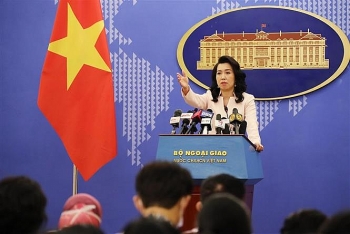 | China again deploying bomber to Paracel and violating Vietnam’s sovereignty over the archipelago China’s deployment of weapons and fighter aircraft to Hoang Sa (Paracel) archipelago not only is a violation of Vietnam’s sovereignty but also further exacerbates the ... |
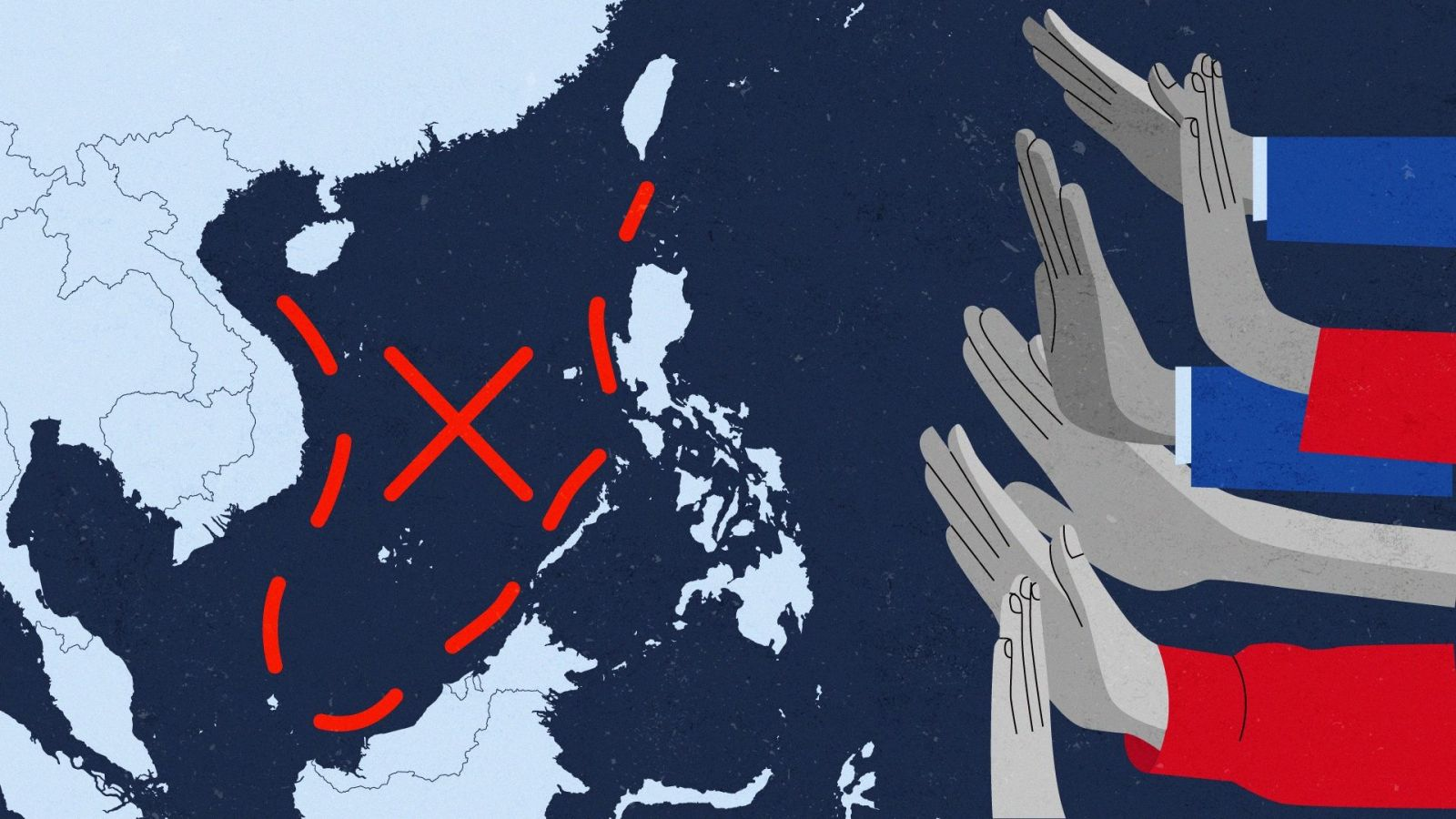 | The Truth About The South China Sea: A Voice From Vietnam (Part II) China is always asserting that it has full "historical and legal grounds" on China's "indisputable sovereignty" in the South China Sea. Let's see how the ... |
![The Truth About The South China Sea [*] : A Voice From Vietnam (Part I) the truth about the south china sea a voice from vietnam part i](https://vietnamtimes.org.vn/stores/news_dataimages/dieulinhvnt/082020/24/08/thumbnail/0738_5243_Tau_CYnh_sat_biYn_8001_lam_nhiYm_vY_tYi_khu_vYc_nha_gian_DK1_15_Ynh_Lam_KhanhTTXVN.png?rt=20200824151429) | The Truth About The South China Sea [*] : A Voice From Vietnam (Part I) Increasingly complicated and tense developments related to the South China Sea are attracting international attention. Meanwhile, some information sources are trying to mislead the public ... |
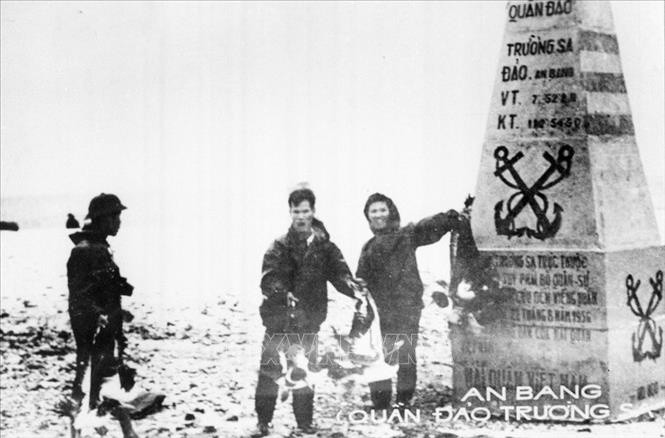 Focus
Focus
Truong Sa (Spratly) 1988 - Dossier on Historical Incident: Diplomacy and Reality
Recommended
 Seas and islands
Seas and islands
Vietnam Endorses Common Voice on Ocean Jurisdiction
 Seas and islands
Seas and islands
Dialogue as Key to Settling Disputes and Advancing Law of the Sea
 Seas and islands
Seas and islands
RoK Navy Ship Pays Friendly Visit to Da Nang City
 Seas and islands
Seas and islands
Naval Region 5 Promotes Reading Culture, Fosters Patriotism
 Seas and islands
Seas and islands
Coast Guard Region 2 Command Hosts Philippine Coast Counterpart
 Seas and islands
Seas and islands
Vietnam - Thailand Navy: Coordination to Well Address Problems at Sea
 Seas and islands
Seas and islands
Honoring the Fallen: Incense Offering for the 37th Anniversary of Gac Ma
 Seas and islands
Seas and islands

